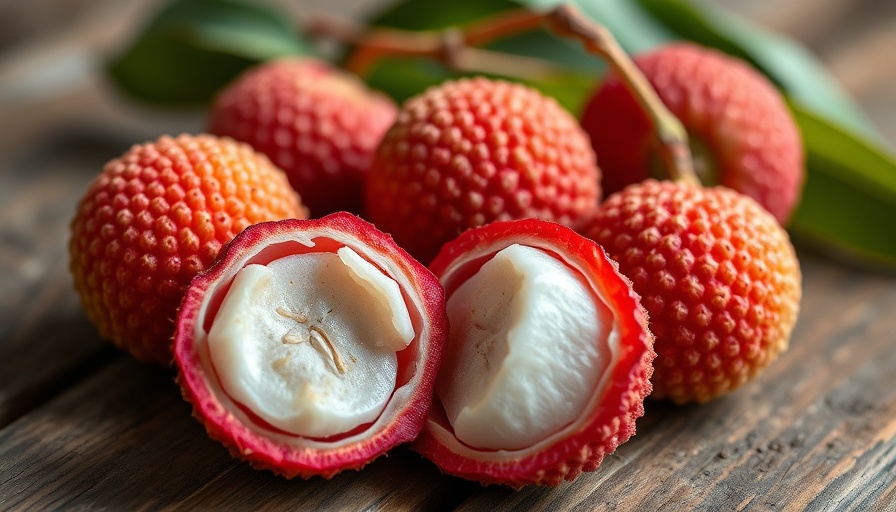
The Dark Side of Lychee: What You Need to Know
Lychee fruit is beloved for its sweet, fragrant flavor, often consumed in a variety of cultural dishes. But did you know that this seemingly innocent fruit harbors potential health risks? Scientific investigations have linked the consumption of lychee, particularly in large quantities, to severe health issues in children in certain regions. This raises pertinent questions for those who enjoy lychee regularly.
Understanding the Risk: Low Blood Sugar Concerns
Research indicates a troubling correlation between high consumption of lychee and the onset of hypoglycemic illnesses among children, primarily in vulnerable populations with restricted dietary access. Lychee contains a compound called methylene cyclopropyl-glycine, similar to toxins found in unripe ackee fruit that can disrupt the body's blood sugar production. In areas where children consume lychee on an empty stomach due to poverty, the consequences can be dire.
Impacts on Public Health: A Regional Emergency
In places like India and Vietnam, this issue has risen to the level of a public health crisis, especially during the lychee harvest season when young children are particularly at risk. Cases of sudden illness and death have raised alarms, leading to investigations aimed at determining whether the fruit is indeed contributing to these health crises. A closer look at dietary patterns reveals that it's not just the fruit itself but the conditions under which it is consumed that contribute to these outcomes.
Finding a Balance: How to Enjoy Lychee Safely
So how can you enjoy lychee while minimizing risks? Moderation is key. Nutrition experts recommend limiting your intake to a reasonable amount, especially if there are concerns about your overall dietary balance and nutritional status. Combine lychee with other foods to ensure that you’re maintaining healthy blood sugar levels.
Practical Healthy Lifestyle Tips
Incorporating lychee into an overall healthy diet can be beneficial, provided it is done thoughtfully. This aligns with broader wellness strategies that encourage mindful eating practices and seeking holistic methods of nutrition that prioritize overall well-being. Engaging in a diverse diet, being aware of food pairs, and choosing whole foods can all support a stronger immune system and better health outcomes.
Final Thoughts: Staying Informed is Key
Raising awareness about the potential risks of popular fruits like lychee enables consumers to make informed choices about their diets. Remember, every food has its pros and cons, and being knowledgeable can empower you to be proactive in your health journey. Before indulging, always consider the nutritional context, especially for those in vulnerable conditions.
 Add Row
Add Row  Add
Add 




 Add Row
Add Row  Add
Add 

Write A Comment